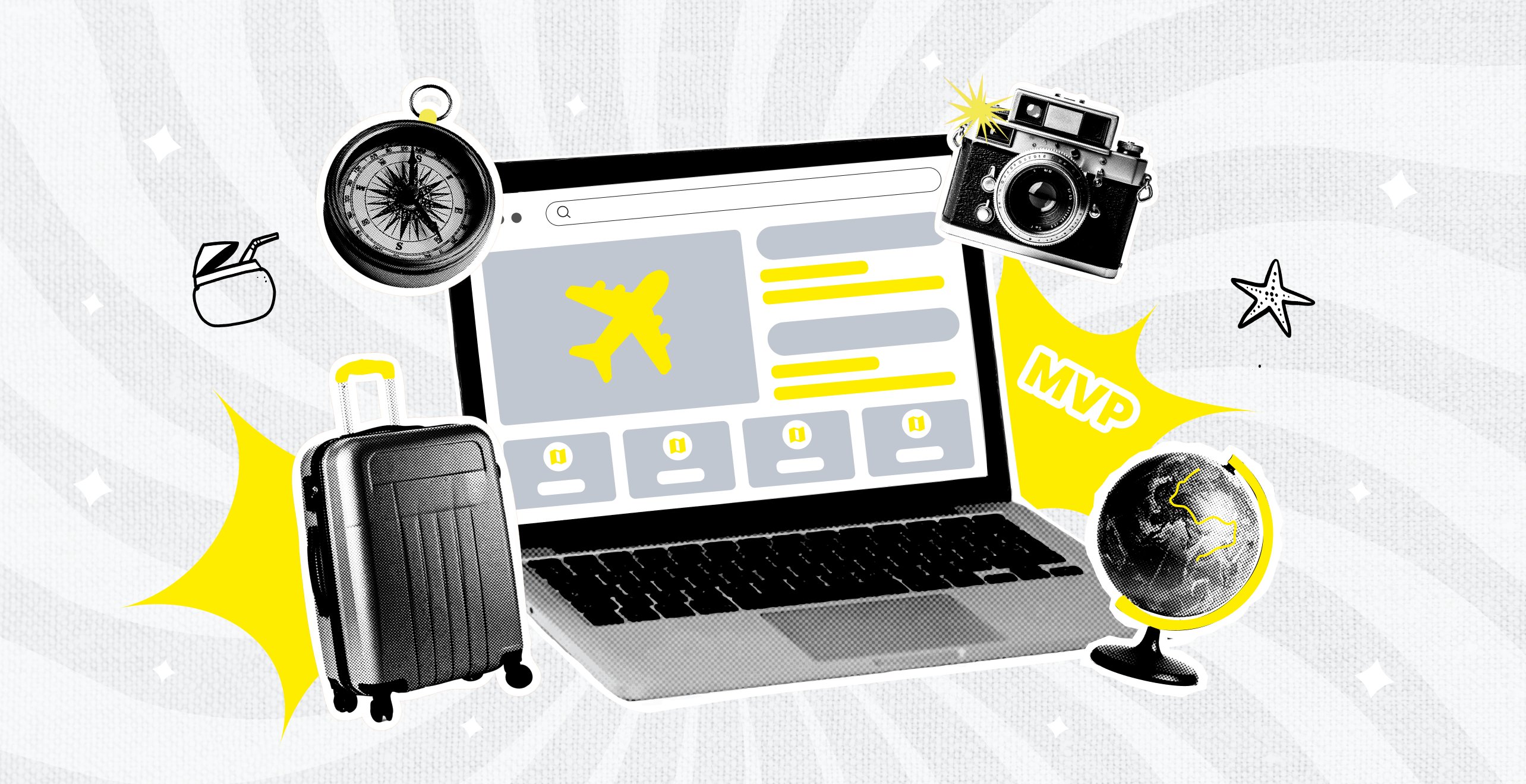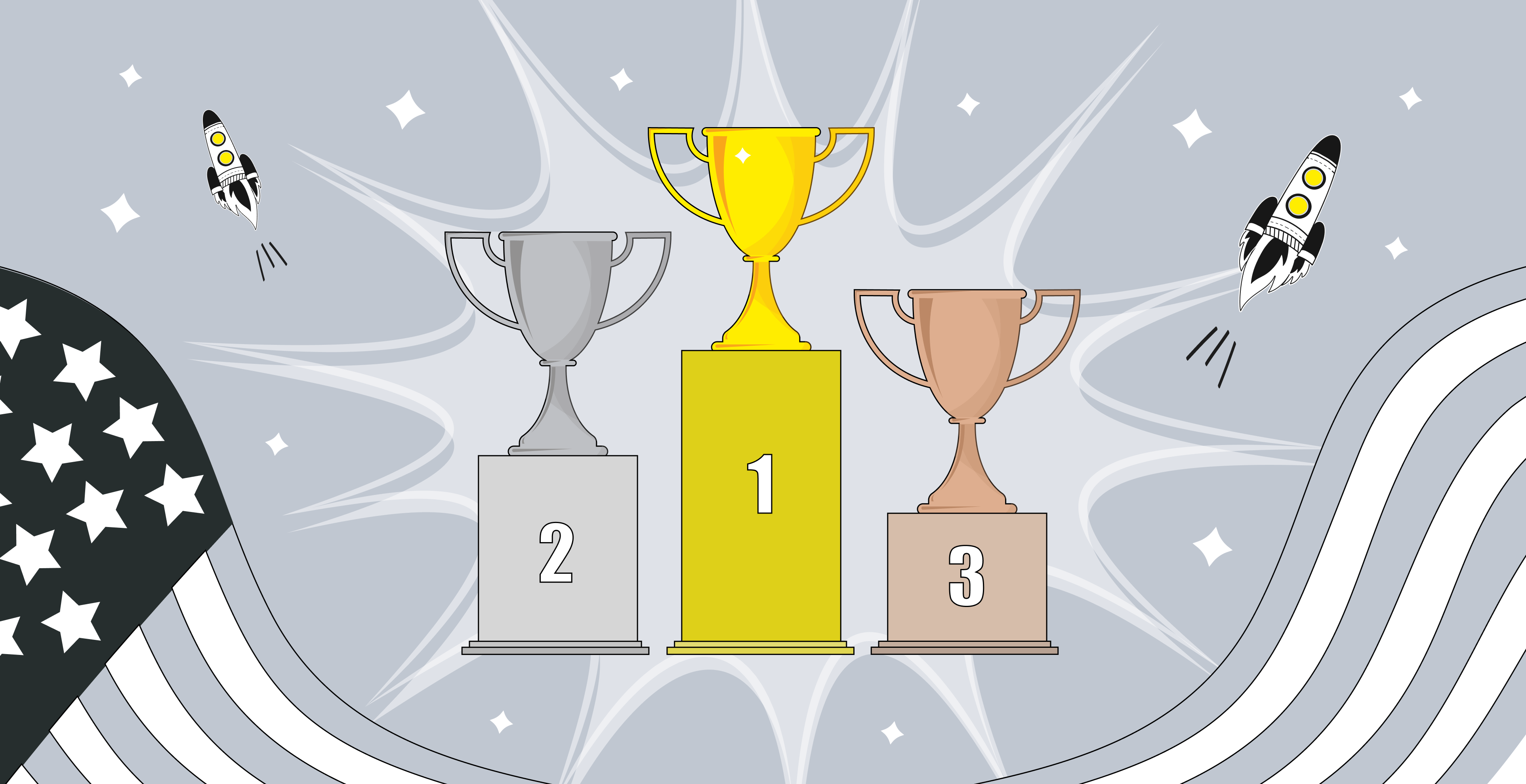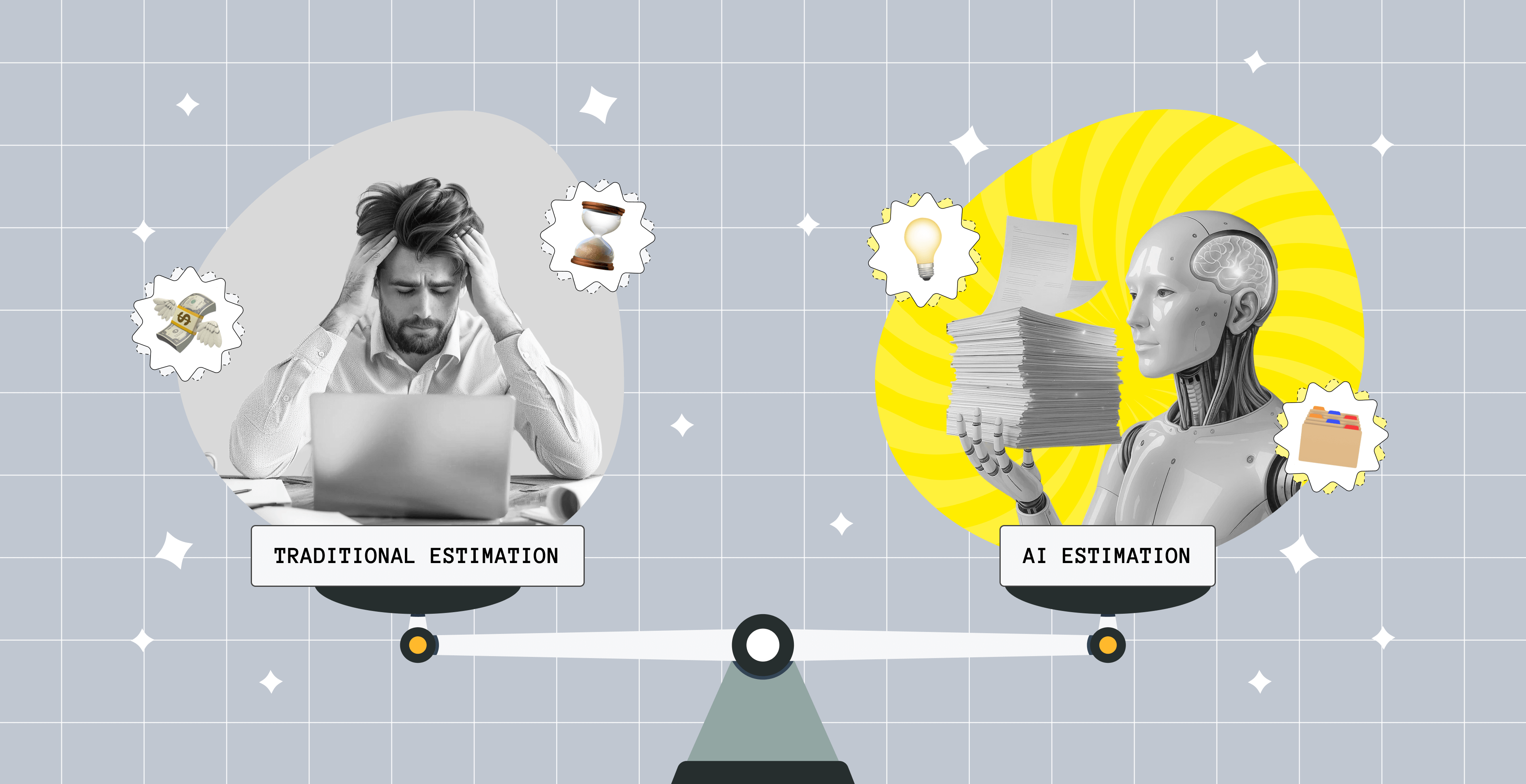Building a Marketplace Website: How Much Does It Cost?

The e-commerce market is becoming more and more competitive today. More than 80% of people all over the world make purchases online. As the demand for online shopping grows, the customers are starting to look for a more holistic shopping experience, which allows them to shop conveniently within one platform. Online marketplaces offer a wider selection of goods and services, and they are more flexible and easier to use.
So, what is the average cost of creating a marketplace website and mobile app? We have decided to answer this question in this article with the help of a leading brand agency. Here we will explore the main factors that influence the cost of creating an online marketplace and consider an example of marketplace cost estimation.
What Is a Marketplace Platform?
An online marketplace is similar to an online store, but it allows to present products from multiple sellers instead of just one brand. Approximately 2.64 billion people worldwide are expected to shop online in 2024. The primary purpose of a marketplace is to connect the buyers and vendors directly and to ensure the safety of the deal for both parties.

What Are the Online Marketplace Advantages?
Before jumping to calculating the cost of marketplace development, let's see what benefits such commercial platforms can bring to businesses:
- marketplaces allow to reduce marketing costs;
- it is an excellent channel to sell and advertise your products;
- marketplaces are a great opportunity to enter international markets;
- purchasing goods in a marketplace is very convenient for the customers;
- marketplaces allow you to get independent reviews on your products, which helps the users make a grounded decision when buying a product, and, as a result, increases sales;
- with marketplaces, it becomes easier to find new business partners;
- marketplaces work 24/7, which means that orders can be made at a time convenient for each user.
What Can Affect Marketplace Development Cost?
Marketplace development cost greatly depends on the type of the marketplace, the technology stack used for its development, and its features. Also, there are some points that should be taken into account:
- All the estimates are approximate. The cost of building a marketplace website or application may vary depending on the project details and requirements that are different in each case, even if the features are similar.
- Marketplace building is a very creative process. Usually, there isn't one common way to develop the website; its implementation depends on the skills of the team and the project's requirements.
- Choosing the right IT service provider should be based on multiple factors: the team's expertise, the communication structure, the well-organized development processes, etc. The cost of marketplace development is not the only thing that should be considered, evaluate vendors thoroughly as well.
Classification of Online Marketplaces
Understanding marketplace classification should also help you shed light on the possible cost of creating an online marketplace and outline the budget more accurately. Let's have a closer look at the categories of marketplaces.
Classification by Participants
Depending on the vendor-customer relations and the target audience of your marketplace, it can relate to one of the following types:
- Business-to-Customer (B2C)
A B2C marketplace means that a business sells its product directly to a customer. Usually, the sellers offer a wide variety of goods, so a customer has a lot of options to choose from. One of the most famous examples of this type is AliExpress.
- Business-to-Business (B2B)
B2B marketplaces help businesses distribute their products and look for new partners. Such marketplaces sell products or services in bulk and are usually operated by a third party. Some of the examples are Alibaba and eWorldTrade.
- Peer-to-Peer (P2P)
This model is also known as customer-to-customer (C2C); it gives the customers an opportunity to sell products and services themselves. Such marketplaces connect people and allow them to share products and services with each other. They often encourage more eco-friendly usage of goods, for example, second-hand products or rental services. Examples include Etsy, Uber, and BlaBlaCar.
Classification by Business Model
The business model of an online marketplace defines the structure it uses to attract customers and vendors and the way it gets revenue. Marketplace business models can be divided into three groups:
- Vertical Marketplaces
Vertical marketplaces are focused on a specific category of products or services instead of selling everything to everyone. This way, they can improve the quality of the products and provide better personalization. Examples: Airbnb, StockX, TrueFacet.
- Horizontal Marketplaces
Horizontal marketplaces offer products and services in different categories. They have a large audience and are aimed at meeting all kinds of customers' needs. Examples: Etsy, OLX, Poshmark.
- Global Marketplaces
Global marketplaces sell their products and services regardless of a particular user's geographic location. They attract relevant customers from all over the world. This category of marketplaces has the largest audience and revenue potential. Examples: Amazon, eBay, AliExpress.
The Technology Stack for Marketplace Development
Before starting to build a marketplace, it is important to consider the technologies you are going to use. The average cost of creating a marketplace website and a mobile app can vary greatly depending on the chosen programming languages, development frameworks, and tools. The chosen tech stack for the platform's development also has a huge impact on its performance and maintenance. So, let's explore some of the main technologies necessary to create a marketplace.

Front-End Development
Front-end is the client side of the website. It includes all the menus, buttons, and interface elements that users can interact with. The tech stack used here includes but isn't limited to:
- HTML;
- CSS;
- JavaScript;
- React;
- Vue.js.
Back-End Development
The back-end part is not visible to the user. It sets up the interaction between the user-side and server-side of the website. The back-end developers are responsible for business logic, database management, working with the server, and other tasks, according to the website's objectives. The tech stack for back-end development may include:
- Python;
- Node.js;
- .NET;
- Golang;
- Java;
- Ruby.
Tools and Integrations
Tools and integrations are made to simplify the development process and the work of the website. Here are some of the examples that can be used in this case:
- AWS S3;
- GitLab;
- GitHub;
- Slack.
Have an idea of a marketplace but not sure how to start?
Get a cost estimation and a consultation from our specialists.

The Must-Have Marketplace Features
To determine the cost of building a marketplace website, you should decide on its functionality and go through product feature prioritization. Of course, it will depend on the marketplace's type, purpose, and complexity, but there is a list of features that are a must-have.

- Sign-up/sign-in allows the new users to start using the marketplace platform. And the registered users are able to sign in to their accounts.
- Item listing allows the vendors to offer their goods or services and make them visible to potential customers, and the customers have an opportunity to view them.
- Categories help the customer find the necessary products and services faster and make the process more efficient.
- The search bar is a must for any marketplace platform; it allows the users to navigate the website in a more convenient way.
- The navigation menu helps the users find the necessary information and access the most popular categories.
- The loyalty program includes discounts and special offers for the clients.
- Cart is the place where the buyer can see all the chosen products. It is also possible to change the order details here.
- The Add to Favorites feature allows the customers to save products they would like to buy later.
- Image/video view allows the user to look at the product before buying it.
- The Share item option enables users to recommend a product to their friends and bring more traffic to your website.
- Reviews help the buyers make more thorough purchasing decisions.
- Seller info covers specific data about the vendor, shipping and payment methods they use, their product listings, etc.
- Recommended products are based on the products viewed by the user recently.
- The user account includes the user's personal information, the ability to view previous orders, and a wishlist.
- Payment system integration such as Stripe, PayPal, or Braintree allows the customers to make purchases using different types of cards so that everyone can choose the method that suits them best.
- The Admin Panel is a must-have for the business owner. The marketplace's settings need to be customizable for various groups of sellers. These settings include shipping and payment methods and fees. The administrator can also manage the listings of the sellers, filters, categories, comments, and reviews.
- Website contact form is essential in case customers would like to reach out with questions or suggestions.
How Much Does It Cost to Build a Marketplace?
Now that we have explored the most important marketplace features, we can estimate the costs and timing of its development. The Upsilon team offers a great variety of tech solutions, and one of them is e-commerce and marketplace development.
For making estimates, our team always uses the PERT (Program Evaluation and Review Technique) estimation method. This approach helps make the estimates as accurate as possible, especially when the requirements are not clearly specified.
Please, note:
- The estimates in each column are provided in days;
- The estimates in each column are provided for one developer.

According to the table above, the time for developing a marketplace is about 2 weeks for the discovery phase and 10 months for the development phase. The estimated development time is counted for one back-end and one front-end developer and can be lowered if more developers are involved.
Now, let's find the estimated marketplace development cost. The problem with estimating development costs is that the hourly rates of individual specialists can vary significantly depending on their experience and qualification. For calculating this estimate, we based upon average rates that range from $30 to $45 per hour. After multiplying the number of hours required to finish each stage by the developers' rates, we got the results shown in the table below.
According to this estimation, the approximate cost of creating an online marketplace is $134,380. As mobile traffic is gaining more and more users today, it can be a good idea to make the marketplace design adaptive for mobile devices. In this case, the total cost can increase by up to 10%, and the estimated marketplace cost for our example will be $147,820.
Please, keep in mind that all the estimations are approximate. Timing and pricing at Upsilon may vary depending on the project requirements that are different in each case, even if the features are similar. If you want to get a cost estimation for your marketplace project idea, contact our experts, and they will find an optimal solution for you.
To Sum Up
Marketplaces today have become one of the main trends in the sphere of e-commerce and on-demand services. More and more customers are looking for a wider assortment of products and convenience when making purchases online. That is why building a marketplace is a worthwhile investment.
We hope that our article was helpful in answering the question, "How much does it cost to build a marketplace?" If you are interested in MVP development services for early-stage startups and you want to create a marketplace, contact us, and our team will be happy to help you.
to top















